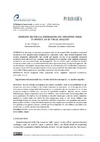Please use this identifier to cite or link to this item:
https://accedacris.ulpgc.es/jspui/handle/10553/70482
| DC Field | Value | Language |
|---|---|---|
| dc.contributor.author | Vázquez, Glòria | en_US |
| dc.contributor.author | Fernández-Montraveta, Ana | en_US |
| dc.date.accessioned | 2020-02-22T08:54:23Z | - |
| dc.date.available | 2020-02-22T08:54:23Z | - |
| dc.date.issued | 2016 | en_US |
| dc.identifier.issn | 2386-8635 | en_US |
| dc.identifier.uri | https://accedacris.ulpgc.es/handle/10553/70482 | - |
| dc.description.abstract | In this paper we present a descriptive study on the compatibility of emphatic reciprocal expressions with Spanish lexical reciprocal (or symmetric) verbs. Since lexical reciprocal verbs express reciprocity intrinsically, they should not require the use of an emphatic reciprocal expression to denote reciprocal meaning. Some scholars even claim that some emphatic reciprocal expressions, such as mutuamente, are incompatible. The aim of this paper is to describe to what extent symmetric verbs can be used with four of these expressions using an empirical approach. The results obtained shed light to the questions raised: we have been able to verify that these expressions are more frequent with non-reciprocal verbs and we have proved that the combination of symmetric verbs with all these expressions is possible, even in the case of mutuamente. | en_US |
| dc.description.abstract | En este artículo presentamos un estudio descriptivo sobre la compatibilidad de las expresiones recíprocas enfáticas y los verbos recíprocos (o simétricos). En tanto que los verbos recíprocos expresan reciprocidad intrínsecamente, es previsible que no requieran el uso de una expresión recíproca enfática para expresar el significado recíproco. Algunos autores incluso defienden que algunas expresiones recíprocas enfáticas, como mutuamente, son incompatibles con estos predicados. El objetivo de este trabajo es describir hasta qué punto los verbos simétricos pueden ser usados junto con cuatro de estas expresiones, para lo cual hemos utilizado una metodología basada en corpus. Los resultados obtenidos responden a las preguntas planteadas: hemos podido verificar la más elevada frecuencia de estas expresiones con verbos no recíprocos que con predicados recíprocos y hemos probado que la combinación de estos últimos con todas estas expresiones es posible, incluso con mutuamente. | en_US |
| dc.language | eng | en_US |
| dc.relation.ispartof | Philologica canariensia | en_US |
| dc.source | Philologica canariensia [ISSN 2386-8635], n. 22, p. 117-136 | en_US |
| dc.subject | 550510 Filología | en_US |
| dc.subject | 570107 Lengua y literatura | en_US |
| dc.subject.other | Lexical reciprocal verbs | en_US |
| dc.subject.other | Symmetric verbs | en_US |
| dc.subject.other | Emphatic reciprocal expressions | en_US |
| dc.subject.other | Reciprocity | en_US |
| dc.subject.other | Corpus | en_US |
| dc.subject.other | Verbos recíprocos léxicos | en_US |
| dc.subject.other | Verbos simétricos | en_US |
| dc.subject.other | Expresiones recíprocas enfáticas | en_US |
| dc.subject.other | Reciprocidad | en_US |
| dc.title | Emphatic Reciprocal Expressions and Symmetric Verbs in Spanish: An Empirical Analysis | en_US |
| dc.type | Article | en_US |
| dc.type | info:eu-repo/semantics/article | en_US |
| dc.identifier.doi | 10.20420/PhilCan.2016.106 | en_US |
| dc.investigacion | Artes y Humanidades | en_US |
| dc.type2 | Artículo | en_US |
| dc.identifier.ulpgc | Sí | es |
| dc.description.esci | ESCI | |
| dc.description.dialnetimpact | 0,0 | |
| dc.description.dialnetq | Q3 | |
| dc.description.dialnetd | D6 | |
| dc.description.erihplus | ERIH PLUS | |
| item.grantfulltext | open | - |
| item.fulltext | Con texto completo | - |
| Appears in Collections: | Artículos | |
WEB OF SCIENCETM
Citations
2
checked on Feb 8, 2026
Page view(s) 5
53
checked on Jan 10, 2026
Download(s)
63
checked on Jan 10, 2026
Google ScholarTM
Check
Altmetric
Share
Export metadata
Items in accedaCRIS are protected by copyright, with all rights reserved, unless otherwise indicated.
